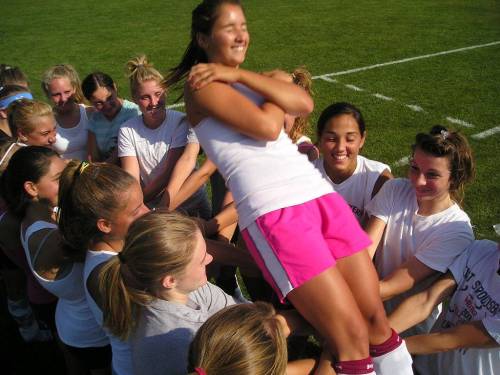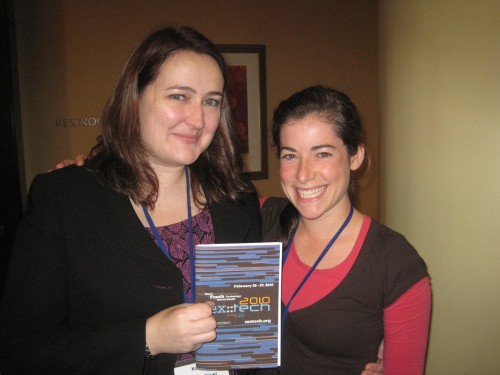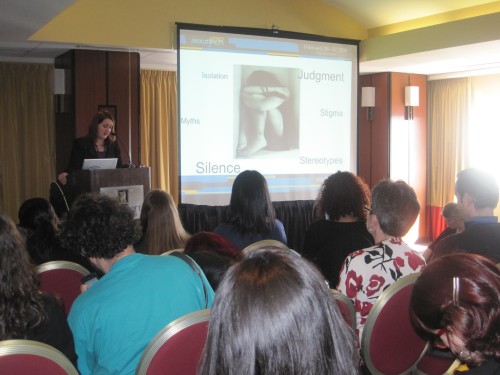 Kristen Schultz Oliver, Exhale’s Director of Programs
Kristen Schultz Oliver, Exhale’s Director of Programs
Over the years I have witnessed the profound impact of kind, compassionate conversation that has been taking place on the Exhale After-Abortion Talkline. These are rare and significant moments where Exhale counselors are safe harbors in an otherwise tumultuous sea of judgment and stigma around abortion. And in the time since the talkline started, counselors and staff at Exhale have been in the privileged position to make observations about the “big picture” regarding women’s needs after-abortion.
We hear from thousands of women and men every year across this country, and while individual needs are unique and vary widely, there are some common questions we’ve heard. Some of our most often-repeated comments since we launched the talkline include the following:
“Am I the only one?”
“Does anyone else feel this way?”
“Do you know what it’s like?”
“I wonder what other women do afterward to feel better.”
Collectively these questions point to a need for women not to feel isolated in their abortion experiences. It’s one thing for a counselor to say, “You’re not the only one! 1 in 3 women by the time they’re 45 will have an abortion – over a million women every year in this country…” etc. It’s another thing entirely for the woman in question to understand this for herself – not just take our word for it – be able compare notes and share ideas with other women, some of whom likely know what she’s going through, because they’ve been through it too. Yet the stigma surrounding abortion often keeps women’s’ voices silent and hidden from one another, and many do not realize that a friend or family member has also had an abortion and might be able to relate to them.
Here’s the conundrum then: if you’ve had an abortion, how do you take that leap of faith and trust someone with your personal, private experience? You don’t need to be a scholar of abortion care or politics in this country to know that it’s not safe to talk openly about personal abortion experiences. It’s a mine field out there! The status quo regarding public dialogue and abortion in this country is such a vile, vitriolic thing that it turns my stomach to think about it. Even people you think you can trust don’t always understand – and it can be devastating to be met with complete incomprehension from friends and family, to say nothing of the name-calling and hate-spewing that happens in more extreme cases.
Exhale has been offering a vital alternative to that on our talkline, and the clearly identified need for women to share freely with each other steadily became a mandate for us over time. As a learning organization, we have always taken our responsibility seriously to not just observe but to adapt to meet the needs of our callers, and last year the time was ripe to put our pro-voice approach to the test in another forum. It was never a question of “if”, only a question of “how” to achieve a new mission-centered goal: to provide women with a trustworthy place and way to connect with each other directly around their shared personal abortion experiences. The technology to make it happen is now easily available, inexpensive and user-friendly, which meant the need, our expertise and the tools all came together in a lucky convergence.
And thus the Exhale Online Community came into being!
But I’m skipping the critically important preparation that took place before it launched in 2009. We did not undertake the creation of the community lightly. Over the course of many months, Exhale learned from experts, conducted research, and consulted with attorneys so that we could provide the most supportive, respectful, private online place possible. We clarified and refined our core values, we articulated our guidelines for interaction with painstaking detail, we developed protocols for moderating the community, and we built the platform and decided on community features. Perhaps most important of all, we decided to offer invitations only to our talkline callers and ensured that admittance to the community was by application only.
Why all this intention, deliberation and caution?
In our experience, a sense of trust and safety is absolutely essential to having honest and candid conversation about abortion. We would be remiss if we did not proceed carefully and thoroughly, given our in-depth knowledge of what people are up against around abortion. We also know that most other online spaces for people to talk about abortion do not foster trust and safety. Elsewhere online the topic of abortion is dominated by political tangents, rude and impolite comments, personal attacks, slurs and offensive comments and all kinds of harassment. For us, we had to take every reasonable precaution against this and instead have participation be rooted in personal stories and a genuine desire to engage with others respectfully.
The result of all this hard work? Unimagined, awe-inspiring success, beyond anything we had dared to hope.
I’ll explain: to begin with, success for us is first measured in the exceptional tenor and tone of interaction between community members. In order to evaluate that, we needed a generous volume of people joining the site at a steady yet manageable pace, with a high percentage of members contributing content. We also knew we were expecting people to interact in a totally different way about abortion, and not only did we call upon members to work with us in making the space as respectful and inviting as possible, we consistently modeled respectful behavior in our moderation.
As we referred callers to the community, they arrived in gradual waves, and from the beginning, community members’ stories and comments demonstrate a willingness to embody pro-voice values and abide by the guidelines we set forth. With long and compelling individual stories being posted, there are many details for other members to read and respond to. Members take risks in sharing intense emotions and vulnerabilities with each other, and many posts ask for advice, input, ideas, and support. Replies are consistently warm, generous, helpful, kind – even affectionate! There are also the most amazing expressions of gratitude from community members to each other, and to Exhale for providing the space.
It feels incomplete to list all of this here and not provide quotes and examples to support my claims, but one of the non-negotiable values on the community is confidentiality. Preserving this is a fundamental priority for us, and it is strictly prohibited to share members’ stories, experiences, photos or videos outside the community.
Such was my dilemma when I presented our findings at sex::tech 2010 in a panel on Innovation. I wanted to be able to share what we’ve learned about the community without violating the confidentiality we’ve worked so hard to maintain. Instead, I gave them, what I hope is, a sense of what it’s like to participate in the community:
The best way I can describe it is like a “trust fall”. This is an exercise in which one person stands in an elevated position and falls backward into a group of people who are expected to catch her. The falling person takes a risk and trusts that the group behind her will extend their arms and work collectively to keep her from crashing into the ground and hurting herself. One person alone could not bear the weight of the falling person – but when joined together, many people can catch her and remain strong.

The Exhale Online Community is like a trust fall to me. No one is dropped, and members are buoyed, held above the fray, embraced.
Moving beyond the analogy, Exhale is measuring our success in concrete terms, including this snapshot:
- 102 members in first 6 months (July 2009 through Jan. 2010)
- An average of 3-5 new members joined per week
- 64% of members contributed content
- Over 700 written posts (including blogs and comments)
- An average of 11 posts per contributing member
It was a fantastic opportunity for me to share about the community at sex::tech, especially given that this was the very first time Exhale was speaking publicly about it, and only on the first six months of operation. One big take-away: many of the questions I received were concerned with expansion and increasing access to the community:
“What are your plans for growth?”
“Can health care providers refer patients to the community?”
“When will you be opening up the community to significant others?”
“With only about a hundred members so far, you’re barely scratching the surface. How do you intend to reach the over a million women each year who have an abortion?”
While the desire to have this kind of after-abortion support available to the masses is understandable, it’s not our aim to make this relatively small community available to everyone who has had an abortion. We know that each woman’s needs after an abortion are unique: some women will not need any special support after-abortion, others will find the support they need within their established network of friends and family, some will reach out and call our talkline for one-on-one support, and others will seek an online way to connect with other women. There is no one-size-fits-all approach.
For those seeking to create community around their abortion experiences, Exhale believes that the quality of conversation that takes place about abortion is paramount and must be well-established before we tackle quantity. That is where our focus has been, and that is where we have found success. Going forward we will take the lessons learned here – clarify positive values, establish guidelines for interaction, invite people intentionally, conscientiously moderate the space, start small, grow deliberately and purposefully – and continue to meet people’s after-abortion needs as we understand them. This will always be based in people’s real lives and individual experiences, with women’s voices front and center.


Read Full Post »


 Kristen Schultz Oliver, Exhale’s Director of Programs
Kristen Schultz Oliver, Exhale’s Director of Programs


